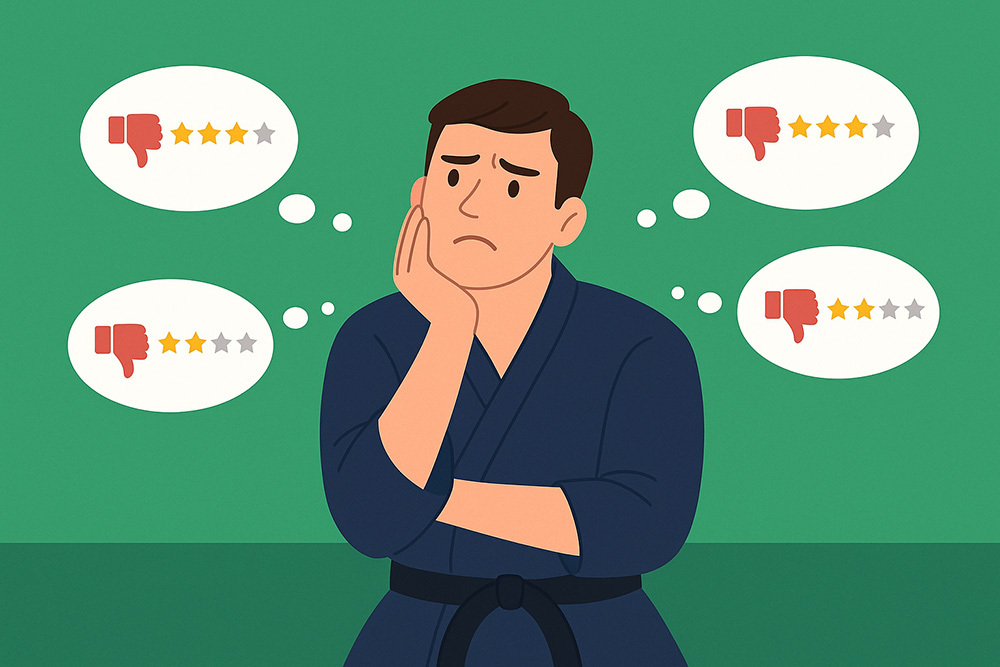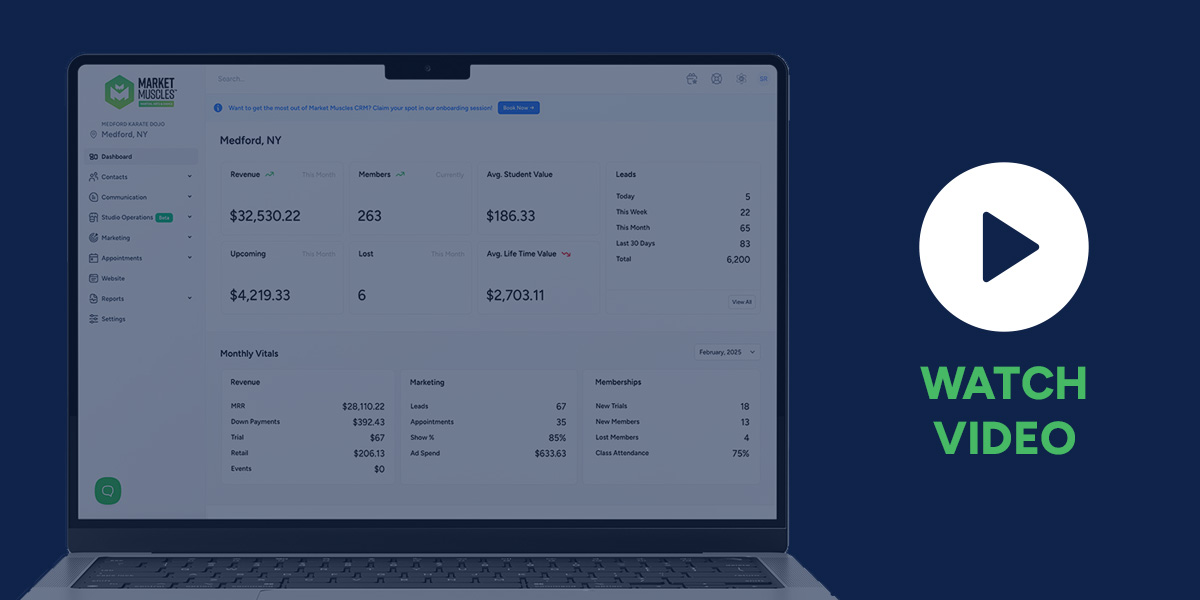Why Responding to Negative Reviews on Google and Facebook Is Critical for Your Studio’s Reputation

Negative reviews can actually help your martial arts or dance studio shine—if you handle them the right way. Here’s why responding matters and how to do it effectively on Google, Facebook, and Yelp.
Why Do Negative Reviews Matter So Much?
Whether it’s on Google, Facebook, or Yelp, a negative review can feel discouraging. But it’s important to remember that reviews—both positive and negative—shape how potential students and parents see your studio. In fact, people often trust a business more when they see a mix of reviews and thoughtful responses from the owner.
Ignoring negative feedback can send the wrong message, while responding professionally shows you care about your community and are committed to providing an excellent experience.
How Responding to Negative Reviews Builds Trust
When you reply to a negative review, you’re not just talking to the person who wrote it—you’re speaking to every future customer who reads it. Your response demonstrates transparency, empathy, and accountability, which are all critical for building trust and credibility in your local market.
1. It Humanizes Your Brand
Martial arts and dance studios thrive on personal connection. A warm, professional response to criticism shows that real people run your studio, people who care about growth and feedback. This makes your business more relatable and trustworthy.
2. It Turns Problems Into Opportunities
Responding gives you a chance to address misunderstandings, clarify policies, and even invite the reviewer to reconnect. Some negative reviewers end up updating their feedback after a thoughtful follow-up. It’s an opportunity to turn dissatisfaction into loyalty.
3. It Signals Professionalism to New Prospects
Potential students often check reviews before contacting a studio. Seeing how you respond to criticism can make the difference between them choosing you or a competitor. A well-written reply shows you handle challenges with grace and professionalism.
Best Practices for Responding on Google, Facebook, and Yelp
While each platform works a little differently, the same core principles apply when managing negative reviews. Here’s how to handle them effectively.
1. Respond Promptly and Calmly
Try to reply within a few days. Quick, composed responses show attentiveness. Avoid defensive language—thank the reviewer for their feedback and acknowledge their concern.
2. Personalize Your Message
Use the reviewer’s name if available, and reference specific details from their comment. Avoid using a generic copy-and-paste response. A personal touch demonstrates genuine care.
3. Take the Conversation Offline When Needed
If the issue requires further discussion, invite the reviewer to connect privately. For example: “We’d love to talk more about your experience. Could you call or email us so we can make things right?” This keeps the public comment concise and professional.
4. Stay Professional and Positive
Even if a review feels unfair or inaccurate, resist the urge to argue. Focus on understanding, empathy, and solutions. Remember that potential customers are reading to assess your professionalism, not to determine who’s “right.”
5. Learn From Constructive Criticism
Sometimes a negative review points out a real opportunity to improve. If multiple people mention similar concerns, it might be time to reexamine certain aspects of your operations, like communication, class structure, or billing clarity.
Examples of Effective Responses
Example 1: Addressing Miscommunication
Review: “We signed up for a trial class but never got the email confirmation.”
Response: “Hi Sarah, thank you for bringing this to our attention. We’re sorry for the confusion and have double-checked our email system to ensure this doesn’t happen again. We’d love to invite your family back for another free trial class—please contact us directly so we can schedule a time that works for you.”
Example 2: Responding to a Dissatisfied Student
Review: “My child didn’t feel included during class.”
Response: “Hi Mark, we’re very sorry to hear that your child didn’t feel comfortable. Inclusion and encouragement are at the heart of what we do, and we take this feedback seriously. We’d appreciate the chance to learn more about your experience so we can improve. Please reach out to us directly so we can make things right.”
What Not to Do When Responding
- Never delete legitimate negative reviews unless they violate platform policies.
- Avoid sarcasm or defensiveness—it can escalate the situation.
- Don’t ignore reviews for too long; silence can seem like indifference.
- Never post fake positive reviews to balance out negatives; authenticity always wins.
FAQ: Handling Negative Reviews at Your Studio
Should I respond to every single negative review?
Yes, if possible. Even a short acknowledgment shows you value feedback and are engaged with your community.
What if a review is fake or clearly inaccurate?
Flag it on the platform and provide context in your response without accusing the reviewer. Google, Facebook, and Yelp all have reporting tools for suspicious content.
Can I ask happy students to leave reviews to balance things out?
Absolutely, as long as you’re not offering incentives. Regularly encouraging satisfied members to share feedback helps maintain a healthy, authentic review profile.
Should I ever take legal action over a bad review?
Only in extreme cases of defamation or false claims. Usually, a calm, professional reply is the best route for preserving your reputation.
What if responding makes the reviewer angrier?
It happens occasionally, but the key is to remain calm. Others will see that you handled it professionally, which often matters more than the reviewer’s tone.
Conclusion: Turn Negativity Into Growth
Negative reviews are inevitable, but how you respond determines the story your community sees. By staying calm, professional, and proactive, you can transform criticism into trust and even win back disappointed customers. Every response is a chance to reinforce your studio’s commitment to growth, respect, and customer care.
Want to learn more about strengthening your online reputation? Check out our resources on reputation management for studios like yours.
